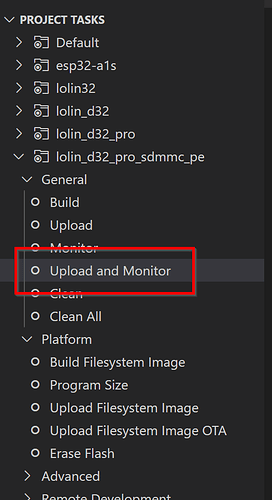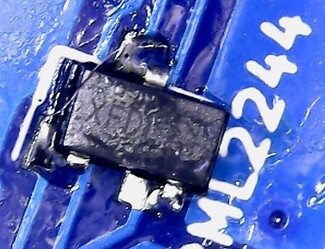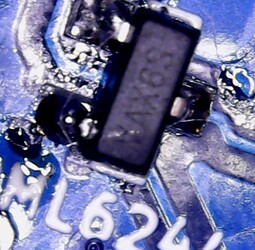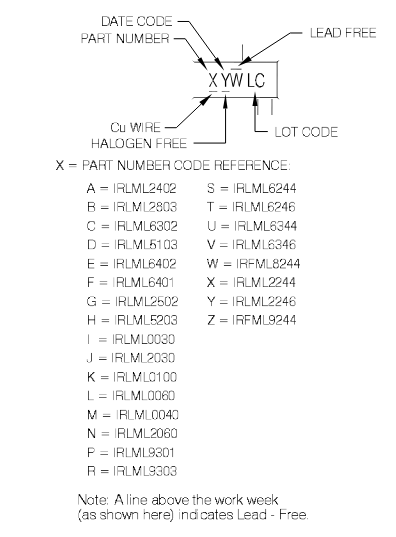Hi,
ich bin Daniel und komme aus Aachen. Ich habe vor einigen Jahren eine Tonuino Box für meinen Sohn (inzwischen 4 Jahre alt) gebaut. Die würde ich nun gerne „upgraden“. Habe mich daher sehr gefreut, als ich vor einigen Tagen dieses Projekt im Instructables Newsletter gefunden habe.
Ich versuche nun seit einigen Tagen ein Lolin D32 pro mit einem PN5180 RFID Reader zum laufen zu bekommen.
Aber die Probleme fangen schon recht früh an:
Ich habe nur das nackte D32 pro „angeschlossen“ mit gesteckter SD Karte.
- Ein SD Test Skript aus der Arduino App kann erfolgreich auf die Karte schreiben und davon lesen
- wenn ich espuino mit RC522-SPI kompiliere kann ich im Webinterface die SD-karte durchsuchen
- wenn ich espuino mit PN5180-SPI kompiliere findet er die SD Karte nicht…
[E][sd_diskio.cpp:194] sdCommand(): Card Failed! cmd: 0x00
[E][sd_diskio.cpp:775] sdcard_mount(): f_mount failed: (3) The physical drive cannot work
[E][sd_diskio.cpp:194] sdCommand(): Card Failed! cmd: 0x00
SD-Karte konnte nicht gemountet werden.
Angeschlossen ist außer dem nackten D32 pro und der SD-Karte wie gesagt erstmal nix… auch nicht der PN5180.
Hier meine Settings.h (sollte weitesgehend Standard sein…):
#ifndef __ESPUINO_SETTINGS_H__
#define __ESPUINO_SETTINGS_H__
#include "Arduino.h"
#include "values.h"
//######################### INFOS ####################################
// This is the general configfile for ESPuino-configuration.
//################## HARDWARE-PLATFORM ###############################
/* Make sure to also edit the configfile, that is specific for your platform.
If in doubts (your develboard is not listed) use HAL 1
1: Wemos Lolin32 => settings-lolin32.h
2: ESP32-A1S Audiokit => settings-espa1s.h
3: Wemos Lolin D32 => settings-lolin_D32.h
4: Wemos Lolin D32 pro => settings-lolin_D32_pro.h
5: Lilygo T8 (V1.7) => settings-ttgo_t8.h
6: ESPuino complete => settings-complete.h
7: Lolin D32 pro SDMMC Port-Expander => settings-lolin_d32_pro_sdmmc_pe.h
8: AZDelivery ESP32 NodeMCU => settings-azdelivery_sdmmc.h
99: custom => settings-custom.h
more to come...
*/
#ifndef HAL // Will be set by platformio.ini. If using Arduini-IDE you have to set HAL according your needs!
#define HAL 4 // HAL 1 = LoLin32, 2 = ESP32-A1S-AudioKit, 3 = Lolin D32, 4 = Lolin D32 pro; ... 99 = custom
#endif
//########################## MODULES #################################
//#define PORT_EXPANDER_ENABLE // When enabled, buttons can be connected via port-expander PCA9555 (https://forum.espuino.de/t/einsatz-des-port-expanders-pca9555/306)
//#define I2S_COMM_FMT_LSB_ENABLE // Enables FMT instead of MSB for I2S-communication-format. Used e.g. by PT2811. Don't enable for MAX98357a, AC101 or PCM5102A)
#define MDNS_ENABLE // When enabled, you don't have to handle with ESPuino's IP-address. If hostname is set to "ESPuino", you can reach it via ESPuino.local
//#define MQTT_ENABLE // Make sure to configure mqtt-server and (optionally) username+pwd
#define FTP_ENABLE // Enables FTP-server; DON'T FORGET TO ACTIVATE AFTER BOOT BY PRESSING PAUSE + NEXT-BUTTONS (IN PARALLEL)!
#define NEOPIXEL_ENABLE // Don't forget configuration of NUM_LEDS if enabled
//#define NEOPIXEL_REVERSE_ROTATION // Some Neopixels are adressed/soldered counter-clockwise. This can be configured here.
#define LANGUAGE DE // DE = deutsch; EN = english
//#define STATIC_IP_ENABLE // Enables static IP-configuration (change static ip-section accordingly)
//#define HEADPHONE_ADJUST_ENABLE // Used to adjust (lower) volume for optional headphone-pcb (refer maxVolumeSpeaker / maxVolumeHeadphone) and to enable stereo (if PLAY_MONO_SPEAKER is set)
#define PLAY_MONO_SPEAKER // If only one speaker is used enabling mono should make sense. Please note: headphones is always stereo (if HEADPHONE_ADJUST_ENABLE is active)
#define SHUTDOWN_IF_SD_BOOT_FAILS // Will put ESP to deepsleep if boot fails due to SD. Really recommend this if there's in battery-mode no other way to restart ESP! Interval adjustable via deepsleepTimeAfterBootFails.
#define MEASURE_BATTERY_VOLTAGE // Enables battery-measurement via GPIO (ADC) and voltage-divider
//#define PLAY_LAST_RFID_AFTER_REBOOT // When restarting ESPuino, the last RFID that was active before, is recalled and played
//#define USE_LAST_VOLUME_AFTER_REBOOT // Remembers the volume used at last shutdown after reboot
#define USEROTARY_ENABLE // If rotary-encoder is used (don't forget to review WAKEUP_BUTTON if you disable this feature!)
#define BLUETOOTH_ENABLE // If enabled and bluetooth-mode is active, you can stream to your ESPuino via bluetooth (a2dp-sink).
//#define IR_CONTROL_ENABLE // Enables remote control (https://forum.espuino.de/t/neues-feature-fernsteuerung-per-infrarot-fernbedienung/265)
#define CACHED_PLAYLIST_ENABLE // Enables playlist-caching (infos: https://forum.espuino.de/t/neues-feature-cached-playlist/515)
//#define PAUSE_WHEN_RFID_REMOVED // Playback starts when card is applied and pauses automatically, when card is removed (https://forum.espuino.de/t/neues-feature-pausieren-wenn-rfid-karte-entfernt-wurde/541)
//#define SAVE_PLAYPOS_BEFORE_SHUTDOWN // When playback is active and mode audiobook was selected, last play-position is saved automatically when shutdown is initiated
//#define SAVE_PLAYPOS_WHEN_RFID_CHANGE // When playback is active and mode audiobook was selected, last play-position is saved automatically for old playlist when new RFID-tag is applied
//################## select SD card mode #############################
//#define SD_MMC_1BIT_MODE // run SD card in SD-MMC 1Bit mode (using GPIOs 15 + 14 + 2 is mandatory!)
//#define SINGLE_SPI_ENABLE // If only one SPI-instance should be used instead of two (not yet working!)
//################## select RFID reader ##############################
//#define RFID_READER_TYPE_MFRC522_SPI // use MFRC522 via SPI
//#define RFID_READER_TYPE_MFRC522_I2C // use MFRC522 via I2C
#define RFID_READER_TYPE_PN5180 // use PN5180 via SPI
#ifdef RFID_READER_TYPE_MFRC522_I2C
#define MFRC522_ADDR 0x28 // default I2C-address of MFRC522
#endif
#ifdef RFID_READER_TYPE_PN5180
//#define PN5180_ENABLE_LPCD // Wakes up ESPuino if RFID-tag was applied while deepsleep is active. Only ISO-14443-tags are supported for wakeup!
#endif
#if defined(RFID_READER_TYPE_MFRC522_I2C) || defined(RFID_READER_TYPE_MFRC522_SPI)
constexpr uint8_t rfidGain = 0x07 << 4; // Sensitivity of RC522. For possible values see reference: https://forum.espuino.de/uploads/default/original/1X/9de5f8d35cbc123c1378cad1beceb3f51035cec0.png
#endif
//############# Port-expander-configuration ######################
#ifdef PORT_EXPANDER_ENABLE
constexpr uint8_t expanderI2cAddress = 0x20; // I2C-address of PCA9555 (0x20 is true if PCA's pins A0+A1+A2 are pulled to GND)
#endif
//################## BUTTON-Layout ##################################
/* German documentation: https://forum.espuino.de/t/das-dynamische-button-layout/224
Please note the following numbers as you need to know them in order to define actions for buttons.
Even if you don't use all of them, their numbers won't change
0: NEXT_BUTTON
1: PREVIOUS_BUTTON
2: PAUSEPLAY_BUTTON
3: ROTARYENCODER_BUTTON
4: BUTTON_4
5: BUTTON_5
Don't forget to enable/configure those buttons you want to use in your develboard-specific config (e.g. settings-custom.h)
Single-buttons [can be long or short] (examples):
BUTTON_0_SHORT => Button 0 (NEXT_BUTTON) pressed shortly
BUTTON_3_SHORT => Button 3 (ROTARYENCODER_BUTTON) pressed shortly
BUTTON_4_LONG => Button 4 (BUTTON_4) pressed long
Multi-buttons [short only] (examples):
BUTTON_MULTI_01 => Buttons 0+1 (NEXT_BUTTON + PREVIOUS_BUTTON) pressed in parallel
BUTTON_MULTI_12 => Buttons 1+2 (PREV_BUTTON + PAUSEPLAY_BUTTON) pressed in parallel
Actions:
To all of those buttons, an action can be assigned freely.
Please have a look at values.h to look up actions available (>=100 can be used)
If you don't want to assign an action or you don't use a given button: CMD_NOTHING has to be set
*/
// *****BUTTON***** *****ACTION*****
#define BUTTON_0_SHORT CMD_NEXTTRACK
#define BUTTON_1_SHORT CMD_PREVTRACK
#define BUTTON_2_SHORT CMD_PLAYPAUSE
#define BUTTON_3_SHORT CMD_MEASUREBATTERY
#define BUTTON_4_SHORT CMD_SEEK_BACKWARDS
#define BUTTON_5_SHORT CMD_SEEK_FORWARDS
#define BUTTON_0_LONG CMD_LASTTRACK
#define BUTTON_1_LONG CMD_FIRSTTRACK
#define BUTTON_2_LONG CMD_PLAYPAUSE
#define BUTTON_3_LONG CMD_SLEEPMODE
#define BUTTON_4_LONG CMD_NOTHING
#define BUTTON_5_LONG CMD_NOTHING
#define BUTTON_MULTI_01 CMD_TOGGLE_WIFI_STATUS
#define BUTTON_MULTI_02 CMD_ENABLE_FTP_SERVER
#define BUTTON_MULTI_03 CMD_NOTHING
#define BUTTON_MULTI_04 CMD_NOTHING
#define BUTTON_MULTI_05 CMD_NOTHING
#define BUTTON_MULTI_12 CMD_TELL_IP_ADDRESS
#define BUTTON_MULTI_13 CMD_NOTHING
#define BUTTON_MULTI_14 CMD_NOTHING
#define BUTTON_MULTI_15 CMD_NOTHING
#define BUTTON_MULTI_23 CMD_NOTHING
#define BUTTON_MULTI_24 CMD_NOTHING
#define BUTTON_MULTI_25 CMD_NOTHING
#define BUTTON_MULTI_34 CMD_NOTHING
#define BUTTON_MULTI_35 CMD_NOTHING
#define BUTTON_MULTI_45 CMD_NOTHING
//#################### Various settings ##############################
// Serial-logging-configuration
#define SERIAL_LOGLEVEL LOGLEVEL_DEBUG // Current loglevel for serial console
// Static ip-configuration
#ifdef STATIC_IP_ENABLE
#define LOCAL_IP 192,168,2,100 // ESPuino's IP
#define GATEWAY_IP 192,168,2,1 // IP of the gateway/router
#define SUBNET_IP 255,255,255,0 // Netmask of your network (/24 => 255.255.255.0)
#define DNS_IP 192,168,2,1 // DNS-server of your network; in private networks it's usually the gatewy's IP
#endif
// Buttons (better leave unchanged if in doubts :-))
constexpr uint8_t buttonDebounceInterval = 50; // Interval in ms to software-debounce buttons
constexpr uint16_t intervalToLongPress = 700; // Interval in ms to distinguish between short and long press of previous/next-button
// RFID-RC522
#define RFID_SCAN_INTERVAL 100 // Interval-time in ms (how often is RFID read?)
// Automatic restart
#ifdef SHUTDOWN_IF_SD_BOOT_FAILS
constexpr uint32_t deepsleepTimeAfterBootFails = 20; // Automatic restart takes place if boot was not successful after this period (in seconds)
#endif
// FTP
// Nothing to be configured here...
// Default user/password is esp32/esp32 but can be changed via webgui
// ESPuino will create a WiFi if joing existing WiFi was not possible. Name can be configured here.
constexpr const char accessPointNetworkSSID[] PROGMEM = "ESPuino"; // Access-point's SSID
constexpr const char nameBluetoothDevice[] PROGMEM = "ESPuino"; // Name of your ESPuino as Bluetooth-device
// Where to store the backup-file for NVS-records
constexpr const char backupFile[] PROGMEM = "/backup.txt"; // File is written every time a (new) RFID-assignment via GUI is done
constexpr const char playlistCacheFile[] PROGMEM = "playlistcache.csv"; // Filename that is used for caching playlists
//#################### Settings for optional Modules##############################
// (optinal) Neopixel
#ifdef NEOPIXEL_ENABLE
#define NUM_LEDS 12 // number of LEDs
#define CHIPSET WS2812B // type of Neopixel
#define COLOR_ORDER GRB
#endif
// (optional) Default-voltages for battery-monitoring via Neopixel
constexpr float s_warningLowVoltage = 3.4; // If battery-voltage is >= this value, a cyclic warning will be indicated by Neopixel (can be changed via GUI!)
constexpr uint8_t s_voltageCheckInterval = 10; // How of battery-voltage is measured (in minutes) (can be changed via GUI!)
constexpr float s_voltageIndicatorLow = 3.0; // Lower range for Neopixel-voltage-indication (0 leds) (can be changed via GUI!)
constexpr float s_voltageIndicatorHigh = 4.2; // Upper range for Neopixel-voltage-indication (all leds) (can be changed via GUI!)
// (optinal) Headphone-detection (leave unchanged if in doubts...)
#ifdef HEADPHONE_ADJUST_ENABLE
constexpr uint16_t headphoneLastDetectionDebounce = 1000; // Debounce-interval in ms when plugging in headphone
#endif
// Seekmode-configuration
constexpr uint8_t jumpOffset = 30; // Offset in seconds to jump for commands CMD_SEEK_FORWARDS / CMD_SEEK_BACKWARDS
// (optional) Topics for MQTT
#ifdef MQTT_ENABLE
constexpr uint16_t mqttRetryInterval = 60; // Try to reconnect to MQTT-server every (n) seconds if connection is broken
constexpr uint8_t mqttMaxRetriesPerInterval = 1; // Number of retries per time-interval (mqttRetryInterval). mqttRetryInterval 60 / mqttMaxRetriesPerInterval 1 => once every 60s
#define DEVICE_HOSTNAME "ESP32-ESPuino" // Name that is used for MQTT
constexpr const char topicSleepCmnd[] PROGMEM = "Cmnd/ESPuino/Sleep";
constexpr const char topicSleepState[] PROGMEM = "State/ESPuino/Sleep";
constexpr const char topicRfidCmnd[] PROGMEM = "Cmnd/ESPuino/Rfid";
constexpr const char topicRfidState[] PROGMEM = "State/ESPuino/Rfid";
constexpr const char topicTrackState[] PROGMEM = "State/ESPuino/Track";
constexpr const char topicTrackControlCmnd[] PROGMEM = "Cmnd/ESPuino/TrackControl";
constexpr const char topicLoudnessCmnd[] PROGMEM = "Cmnd/ESPuino/Loudness";
constexpr const char topicLoudnessState[] PROGMEM = "State/ESPuino/Loudness";
constexpr const char topicSleepTimerCmnd[] PROGMEM = "Cmnd/ESPuino/SleepTimer";
constexpr const char topicSleepTimerState[] PROGMEM = "State/ESPuino/SleepTimer";
constexpr const char topicState[] PROGMEM = "State/ESPuino/State";
constexpr const char topicCurrentIPv4IP[] PROGMEM = "State/ESPuino/IPv4";
constexpr const char topicLockControlsCmnd[] PROGMEM ="Cmnd/ESPuino/LockControls";
constexpr const char topicLockControlsState[] PROGMEM ="State/ESPuino/LockControls";
constexpr const char topicPlaymodeState[] PROGMEM = "State/ESPuino/Playmode";
constexpr const char topicRepeatModeCmnd[] PROGMEM = "Cmnd/ESPuino/RepeatMode";
constexpr const char topicRepeatModeState[] PROGMEM = "State/ESPuino/RepeatMode";
constexpr const char topicLedBrightnessCmnd[] PROGMEM = "Cmnd/ESPuino/LedBrightness";
constexpr const char topicLedBrightnessState[] PROGMEM = "State/ESPuino/LedBrightness";
constexpr const char topicWiFiRssiState[] PROGMEM = "State/ESPuino/WifiRssi";
#ifdef MEASURE_BATTERY_VOLTAGE
constexpr const char topicBatteryVoltage[] PROGMEM = "State/ESPuino/Voltage";
#endif
#endif
// !!! MAKE SURE TO EDIT PLATFORM SPECIFIC settings-****.h !!!
#if (HAL == 1)
#include "settings-lolin32.h" // Contains all user-relevant settings for Wemos Lolin32
#elif (HAL == 2)
#include "settings-espa1s.h" // Contains all user-relevant settings for ESP32-A1S Audiokit
#elif (HAL == 3)
#include "settings-lolin_d32.h" // Contains all user-relevant settings for Wemos Lolin D32
#elif (HAL == 4)
#include "settings-lolin_d32_pro.h" // Contains all user-relevant settings for Wemos Lolin D32 pro
#elif (HAL == 5)
#include "settings-ttgo_t8.h" // Contains all user-relevant settings for Lilygo TTGO T8 1.7
#elif (HAL == 6)
#include "settings-complete.h" // Contains all user-relevant settings for ESPuino complete
#elif (HAL == 7)
#include "settings-lolin_d32_pro_sdmmc_pe.h" // Pre-configured settings for ESPuino Lolin D32 pro with SDMMC + port-expander (https://forum.espuino.de/t/lolin-d32-pro-mit-sd-mmc-pn5180-max-fuenf-buttons-und-port-expander-smd/638)
#elif (HAL == 8)
#include "settings-azdelivery_sdmmc.h" // Pre-configured settings for AZ Delivery ESP32 NodeMCU / Devkit C (https://forum.espuino.de/t/az-delivery-esp32-nodemcu-devkit-c-mit-sd-mmc-und-pn5180-als-rfid-leser/634)
#elif (HAL == 99)
#include "settings-custom.h" // Contains all user-relevant settings custom-board
#endif
//#define ENABLE_ESPUINO_DEBUG // Needs modification of platformio.ini (https://forum.espuino.de/t/rfid-mit-oder-ohne-task/353/21); better don't enable unless you know what you're doing :-)
#endif
Hoffe man bekommt das mit dem PN5180 doch noch zum laufen, da ich mit dem RC522 in der Tonuino Box eher schlechte Erfahrungen gemacht habe.
Gruß
Daniel





